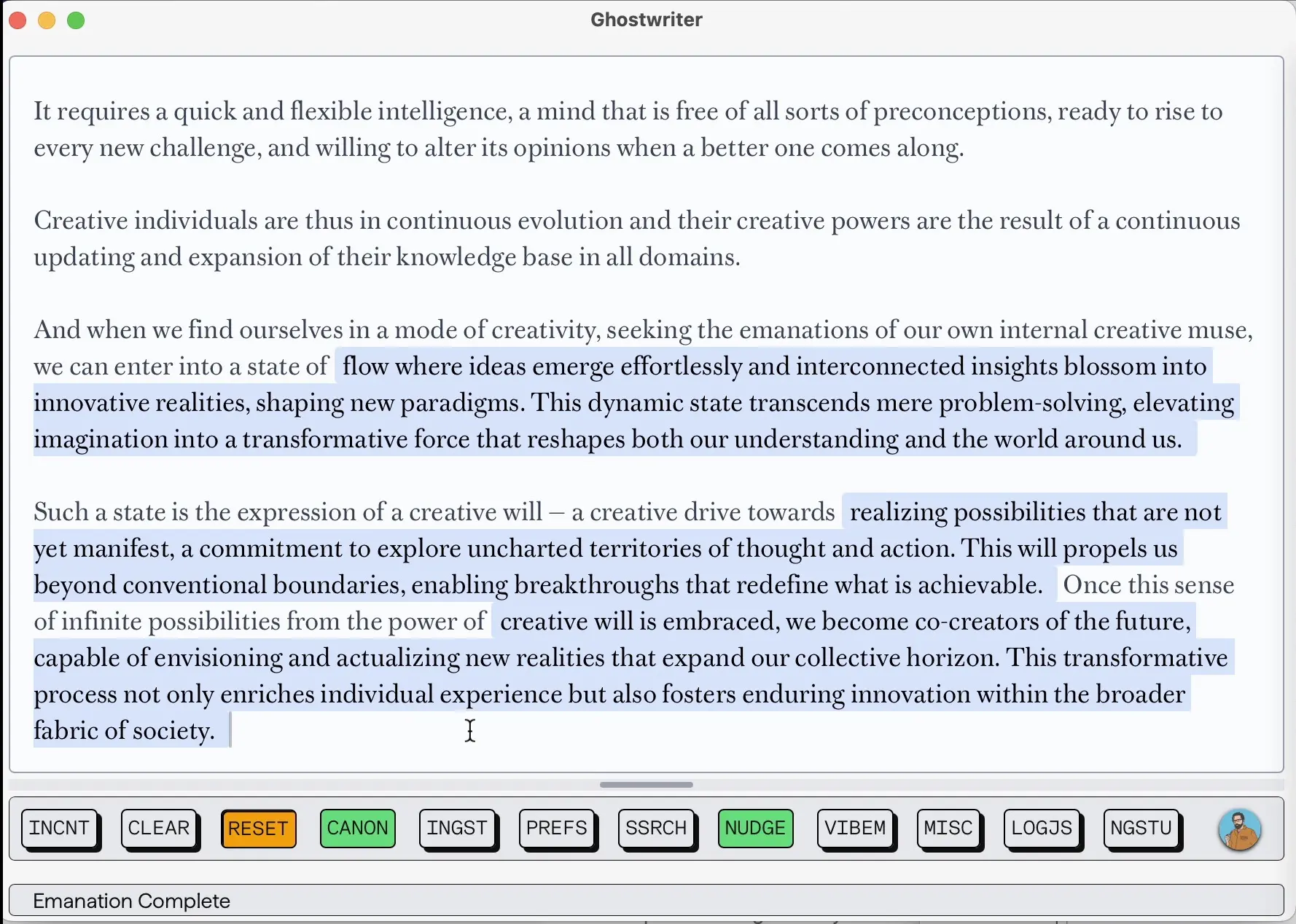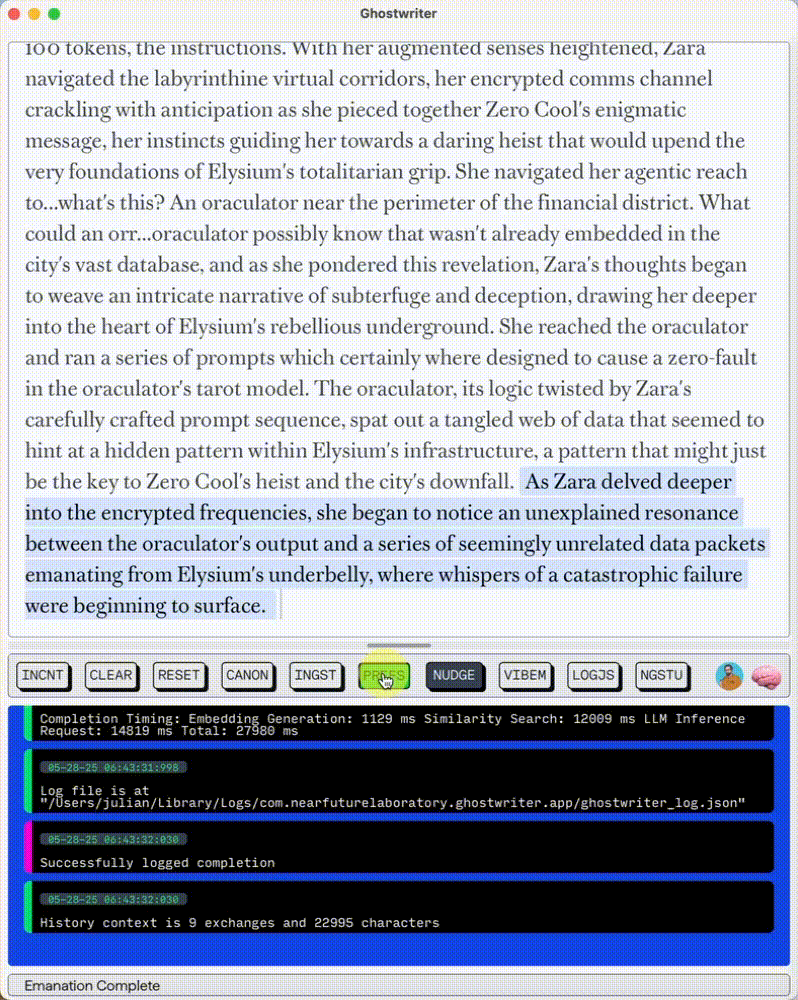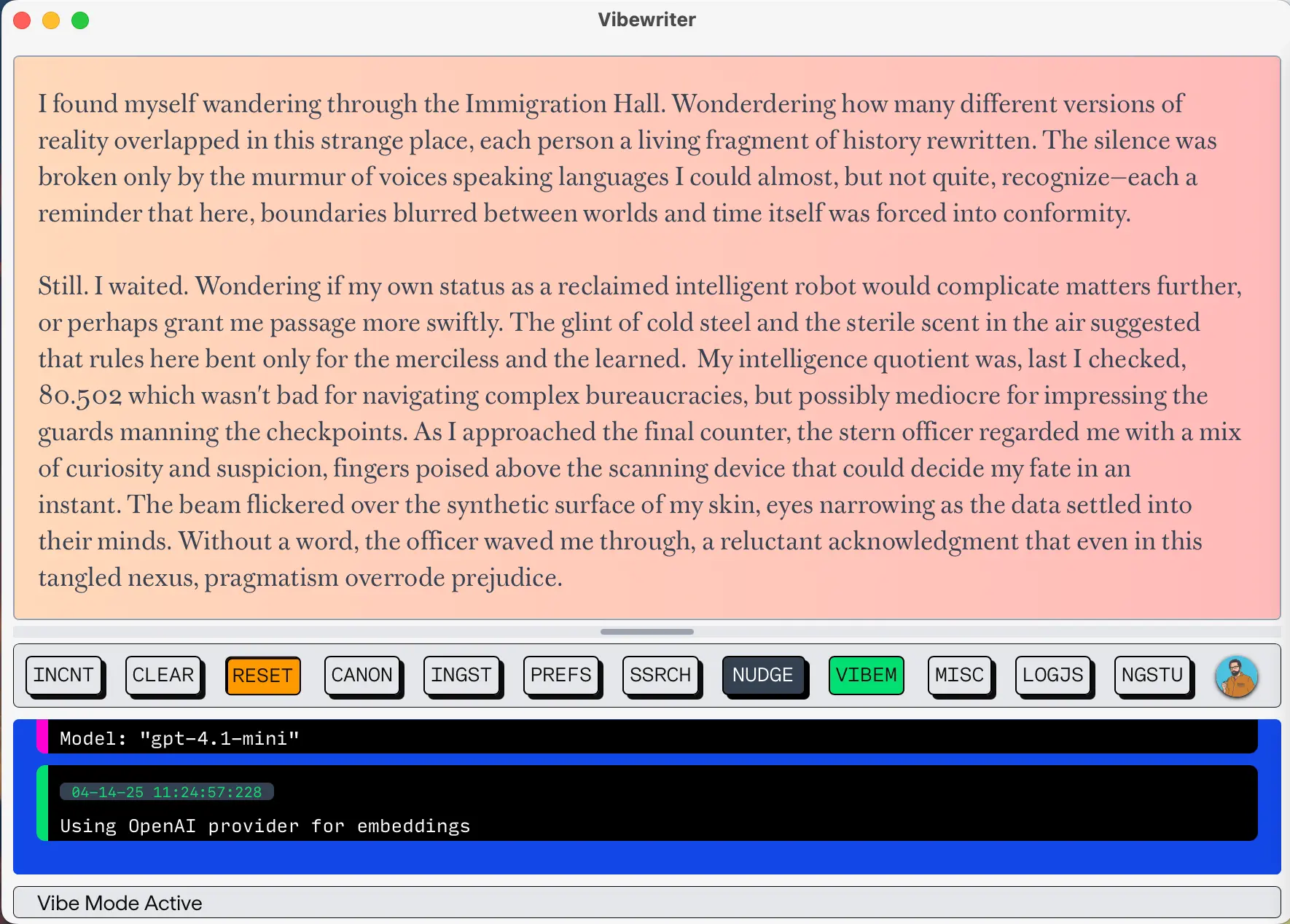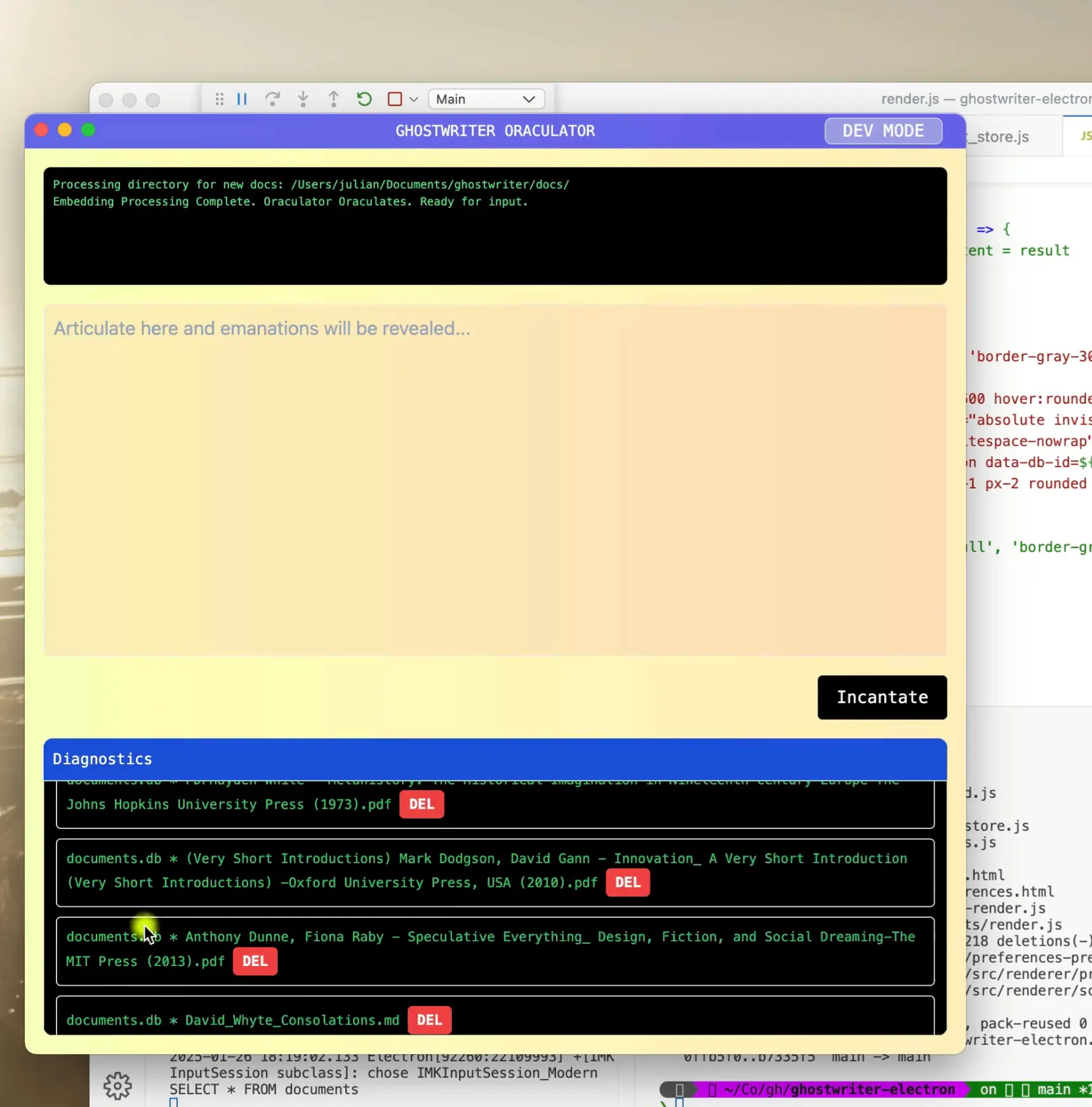
Project Summary
Ghostwriter. It is a writing companion, not a chatbot.
A writing companion that behaves like a muse. It uses your own words as context, retrieving semantically similar fragments from your personal archive and offering stylistically aligned completions.
Rather than a chat interface, Ghostwriter is a silent collaborator—an augment to your voice, not a surrogate. It repositions AI as a tool for creative alignment and memory-based retrieval, mimicking cognitive support more than conversation. This shift counters the growing tendency to replace human interaction with chat-based automation, while surfacing deeper forms of creative alignment and memory-based retrieval that mimic cognitive support more than conversation.
Project Semantic Tags
RUSTTAURIAIGHOSTWRITERJAVASCRIPTPROGRAMMINGRUSTSOFTWARESPECULATIVE DESIGNSPECULATIVE PROTOTYPETOOLSVIBEWRITERWRITING
This..is about wrestling [the tools] into alignment with what we find sacred or essential. We won’t find salvation by escaping technology, but by using our..capacity for critique, ritual, [and] invention.. The saving power is..to ask: “What space remains for meaning? For art? For wildness, chance, suffering, and genuine encounter?”
AI is not inevitable fate. It is an invitation to wake up. The work is to keep dragging what is singular, poetic, and profoundly alive back into focus, despite all pressures to automate it away.
One of the UX design patterns I wanted to explore with Ghostwriter is more game like, or a writing challenge as a kind of exercise to get whatever we mean by “creative juices” flowing. I wanted to see if I could create a kind of “vibe” mode that would be like a writing exercise, or a writing challenge, or a kind of game-like experience. The mechanic here is that the LLM provides a writing start — a couple of sentences or so that kick off a story. I am then left with the task of continuing the story against a timer. It’s like a physical challenge, only for the creative instincts.
Ghostwriter has a few ‘genre paks’ that send it off starting a story of a particular genre. The level of its emanations are typically at the mass market pulp paperback sort of level. And that’s fine. The point isn’t that we’re expecting literary gold or greatness here. Rather, we’re just lifting kettle bells, or trying to summon the creative source or our muse. A bit like morning pages, perhaps? But without the blank page. Just another exercise to keep the writer’s brain in shape.



Another UX mode that felt quite like a different kind of interaction with a collaborating intelligence: rather than asking it stuff, it waits for you to pause for awhile and then offers some completion suggestions. A bit like traditional autocomplete but entire sentences or even more can be configured.
I wanted to see what this would feel like, especially with the ability to consume context from a vector store of my own documents.

Some references
The Artificial Intelligence Designed Fictions Prototyping Studio is a prototyping-based design research program through Near Future Laboratory that explores the potential of artificial intelligence in the context of everyday life.
We are accepting commercial support, corporate or organizational sponsors, and incubation opportunities. To learn more about participating let’s connect..
The research program studies artificial intelligence through the creation of speculative design prototypes. These are meant to explore the potential of artificial intelligence in the context of everyday life.
The focus of the program is on rapid ideation and prototyping. We create small, functional artifacts that help ground possibilities in materiality and interaction. The speculative prototypes are also meant to be evocative and thought-provoking, like generative windows into future opportunities, focused on the practice of everyday life in a world in which we cohabitate, collaborate, and cooperate with a new kind of intelligent species.
Our thesis is that speculative prototyping in an expansive and experimental fashion is the way to discover new opportunities for this next phase of human consciousness. We will explore new kinds of interactions, services, artifacts, and objects as if we are entering a new territory for which the old modalities and assumptions are like ancient epistemologies and ontologies ill-suited for this new land.
In true Design Fiction style, there is the prototype of the artifact itself, but also the worldbuilding material that surrounds it. This research program prototypes in the traditional engineering sense, certainly. But we also create artifacts that are additive to the engineering prototypes and allow the studio to explore the cultural, social, economic, policy, and governance qualities of possible futures.
Clippings from newspapers. Magazine articles. Tourists guides. Social media posts. Receipts. The contents of a found wallet. Advertisements from streetware brands. Paperback self-help books. Podcast episodes. Oracular card games. Movie tickets. Etcetera.
These remanants of an inhabited future world help imagine into possibilities in a rich and textured way. The remants are like working backwards towards technological possibilities by exhibiting their cultural and policy-based effects in a more general and recognizable format
Unique to futures design studios, I not only help you with strategic reflections and considerations on technological and socio-technical futures. Near Future Laboratory is a laboratory in the trad sense of the word: I actually build things from the future — that actual work.
This and other functional futures prototypes are a unique proposition that I offer that most other futures design consults do not.
Industry experience and academic credentials in engineering, software development, advanced studies in technology and society, actual real hardware product design — as well as founding, funding, running, and selling a successful hardware business — means I bring a unique and capable perspective to address the challenges of futures design, research, and engineering.
See Also
Use the Contact Form below to discuss how you can engage Near Future Laboratory to help you make sense of your organization's possible futures.